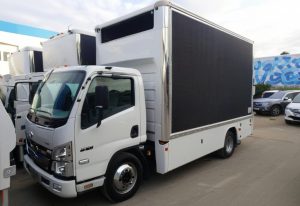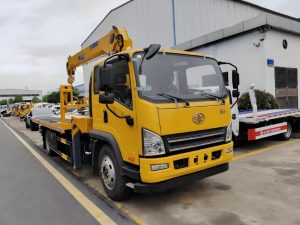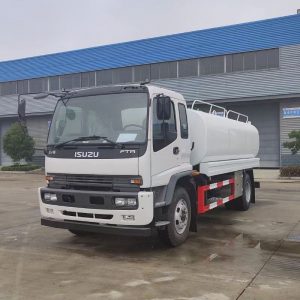Table of Contents
ToggleIntroduction to Fuel Tank Trucks
Fuel tank trucks, also known as tanker trucks or fuel delivery trucks, are an essential component of the transportation industry, playing a crucial role in the distribution and delivery of various liquid fuels, such as gasoline, diesel, and alternative fuels. These specialized vehicles are designed to safely and efficiently transport large quantities of fuel from refineries, terminals, or storage facilities to end-users, ensuring a reliable and uninterrupted supply of energy for a wide range of industries and applications.
History of Fuel Tank Trucks
Early Development of Fuel Tank Trucks
The history of fuel tank trucks can be traced back to the early 20th century, when the demand for motor vehicles and the need for a reliable fuel delivery system grew rapidly. In the early days, fuel was often transported in small containers or drums, which was a time-consuming and labor-intensive process. As the automotive industry expanded, the need for a more efficient and safer method of fuel transportation became increasingly apparent.
Advancements in Fuel Tank Truck Technology
Over the years, fuel tank trucks have undergone significant technological advancements, driven by the need for improved safety, efficiency, and environmental sustainability. Innovations in materials, design, and engineering have led to the development of more robust and versatile fuel tank trucks, capable of meeting the evolving demands of the transportation industry.
Types of Fuel Tank Trucks
Gasoline Fuel Tank Trucks
Gasoline fuel tank trucks are designed to transport and deliver gasoline, a highly flammable and volatile liquid fuel used primarily in passenger vehicles and light-duty trucks. These trucks are equipped with specialized safety features and equipment to ensure the safe handling and transportation of gasoline.
Diesel Fuel Tank Trucks
Diesel fuel tank trucks are responsible for the delivery of diesel fuel, a more dense and less volatile fuel commonly used in heavy-duty vehicles, such as commercial trucks, buses, and construction equipment. These trucks often have larger fuel tanks and more powerful pumping systems to accommodate the higher volume and viscosity of diesel fuel.
Alternative Fuel Tank Trucks
As the transportation industry moves towards more sustainable and environmentally-friendly solutions, the demand for alternative fuel tank trucks has been growing. These trucks are designed to transport and deliver a range of alternative fuels, including compressed natural gas (CNG), liquefied natural gas (LNG), and biofuels, such as ethanol and biodiesel.
Key Components of Fuel Tank Trucks
Fuel Tank
The fuel tank is the primary component of a fuel tank truck, designed to safely contain and transport large volumes of liquid fuel. These tanks are typically made of high-strength steel or aluminum alloys, with features such as baffles and compartments to improve stability and prevent sloshing during transport.
Pump and Metering System
Fuel tank trucks are equipped with sophisticated pumping and metering systems to efficiently load, unload, and dispense the fuel. These systems include powerful electric or hydraulic pumps, flow meters, and control valves, allowing for precise and controlled fuel delivery.
Safety Features
Fuel tank trucks are designed with numerous safety features to mitigate the risks associated with the transportation of hazardous materials. These features may include emergency shut-off valves, grounding systems, fire suppression equipment, and advanced monitoring and communication systems.
Fuel Tank Truck Specifications
Capacity
Fuel tank trucks come in a wide range of capacities, ranging from smaller units capable of transporting a few thousand gallons to larger, tractor-trailer combinations that can carry upwards of 9,000 gallons or more.
Dimensions
The dimensions of fuel tank trucks vary depending on the specific model and application, but they are typically designed to comply with local and national transportation regulations regarding vehicle size and weight limits.
Weight
The weight of a fully loaded fuel tank truck can be substantial, often exceeding 80,000 pounds or more. This requires careful consideration of the vehicle’s structural integrity, suspension, and braking systems to ensure safe and stable operation.
Fuel Tank Truck Maintenance and Inspection
Regular Maintenance Procedures
Maintaining fuel tank trucks is crucial to ensure their safe and reliable operation. This includes regular inspections, preventive maintenance, and the replacement of worn or damaged components, such as tires, brakes, and fuel system components.
Inspections and Regulations
Fuel tank trucks are subject to a range of regulatory requirements and inspections, including pre-trip and post-trip inspections, annual vehicle inspections, and specialized inspections for hazardous materials transportation.
Fuel Tank Truck Safety Protocols
Driver Training and Certification
Operators of fuel tank trucks must undergo extensive training and certification to ensure they have the necessary knowledge and skills to safely handle and transport hazardous materials. This includes training on loading and unloading procedures, emergency response protocols, and defensive driving techniques.
Loading and Unloading Procedures
The loading and unloading of fuel tank trucks are critical operations that require strict safety protocols to prevent spills, leaks, or other incidents. These procedures involve the use of specialized equipment, such as loading arms, hoses, and emergency shut-off valves, as well as the implementation of safety checklists and communication protocols.
Emergency Response Procedures
Fuel tank trucks are equipped with comprehensive emergency response plans and equipment to address a wide range of potential incidents, such as spills, fires, or accidents. Drivers are trained to follow these procedures, which may include the use of containment materials, emergency shut-off systems, and communication with local authorities.
Environmental Considerations
Fuel Efficiency and Emissions
As the transportation industry continues to focus on sustainability and environmental stewardship, fuel tank truck manufacturers are working to improve the fuel efficiency and reduce the emissions of these vehicles. This includes the development of more aerodynamic designs, the use of lightweight materials, and the adoption of alternative fuel technologies.
Spill Prevention and Containment
Fuel tank trucks are designed with multiple layers of protection to prevent spills and minimize the environmental impact in the event of an incident. This includes features such as double-walled tanks, leak detection systems, and spill containment equipment.
Applications of Fuel Tank Trucks
Retail Fuel Delivery
One of the primary applications of fuel tank trucks is the delivery of gasoline, diesel, and alternative fuels to retail fueling stations, ensuring a continuous supply of energy for the transportation needs of the general public.
Construction and Mining
Fuel tank trucks play a crucial role in the construction and mining industries, delivering the necessary fuel for the operation of heavy equipment, such as excavators, bulldozers, and haul trucks.
Agricultural and Rural Areas
In rural and agricultural regions, fuel tank trucks are essential for delivering fuel to farms, ranches, and remote locations, supporting the operations of tractors, harvesters, and other agricultural machinery.
Emerging Trends in Fuel Tank Trucks
Alternative Fuel Vehicles
As the transportation industry moves towards more sustainable solutions, the demand for fuel tank trucks capable of transporting alternative fuels, such as compressed natural gas (CNG), liquefied natural gas (LNG), and biofuels, is on the rise.
Autonomous and Connected Trucks
The development of autonomous and connected fuel tank trucks is an emerging trend, with the potential to enhance safety, efficiency, and fleet management through the integration of advanced technologies, such as sensors, artificial intelligence, and vehicle-to-vehicle (V2V) communication.
Sustainability and Efficiency Improvements
Fuel tank truck manufacturers are continuously working to improve the sustainability and efficiency of these vehicles, focusing on areas such as weight reduction, aerodynamic design, and the integration of alternative fuel systems and regenerative braking technologies.
Regulatory Landscape
Federal and State Regulations
Fuel tank trucks are subject to a complex web of federal and state regulations governing the transportation of hazardous materials, including the Hazardous Materials Regulations (HMR) and the Federal Motor Carrier Safety Administration (FMCSA) regulations.
International Standards
In addition to domestic regulations, fuel tank trucks must also comply with various international standards and agreements, such as the United Nations Recommendations on the Transport of Dangerous Goods, to ensure the safe and harmonized transportation of fuels across borders.
Challenges and Opportunities
Infrastructure Limitations
One of the key challenges facing the fuel tank truck industry is the availability and accessibility of infrastructure, such as fueling stations, terminals, and storage facilities, which can limit the efficient distribution and delivery of fuels.
Driver Shortages
The transportation industry, including the fuel tank truck sector, has faced ongoing challenges in attracting and retaining qualified drivers, which can impact the reliability and timeliness of fuel deliveries.
Technological Advancements
The rapid pace of technological advancements in areas such as alternative fuels, autonomous driving, and fleet management systems presents both challenges and opportunities for fuel tank truck operators, who must adapt to these changes to remain competitive and efficient.
Industry Outlook and Future Prospects
The fuel tank truck industry is poised to play a crucial role in the future of transportation, as the demand for reliable and sustainable energy sources continues to grow. With ongoing advancements in technology, the increasing focus on environmental sustainability, and the evolving regulatory landscape, fuel tank truck manufacturers and operators will need to continuously adapt and innovate to meet the changing needs of the market.
Conclusion
Fuel tank trucks are the backbone of the transportation industry, ensuring the reliable and efficient delivery of the fuels that power our world. From the early days of manual fuel transportation to the highly sophisticated and technologically advanced fuel tank trucks of today, this industry has evolved to meet the ever-changing demands of the modern world. As we look towards the future, the fuel tank truck industry will continue to play a vital role in shaping the transportation landscape, driving innovation, sustainability, and safety.








